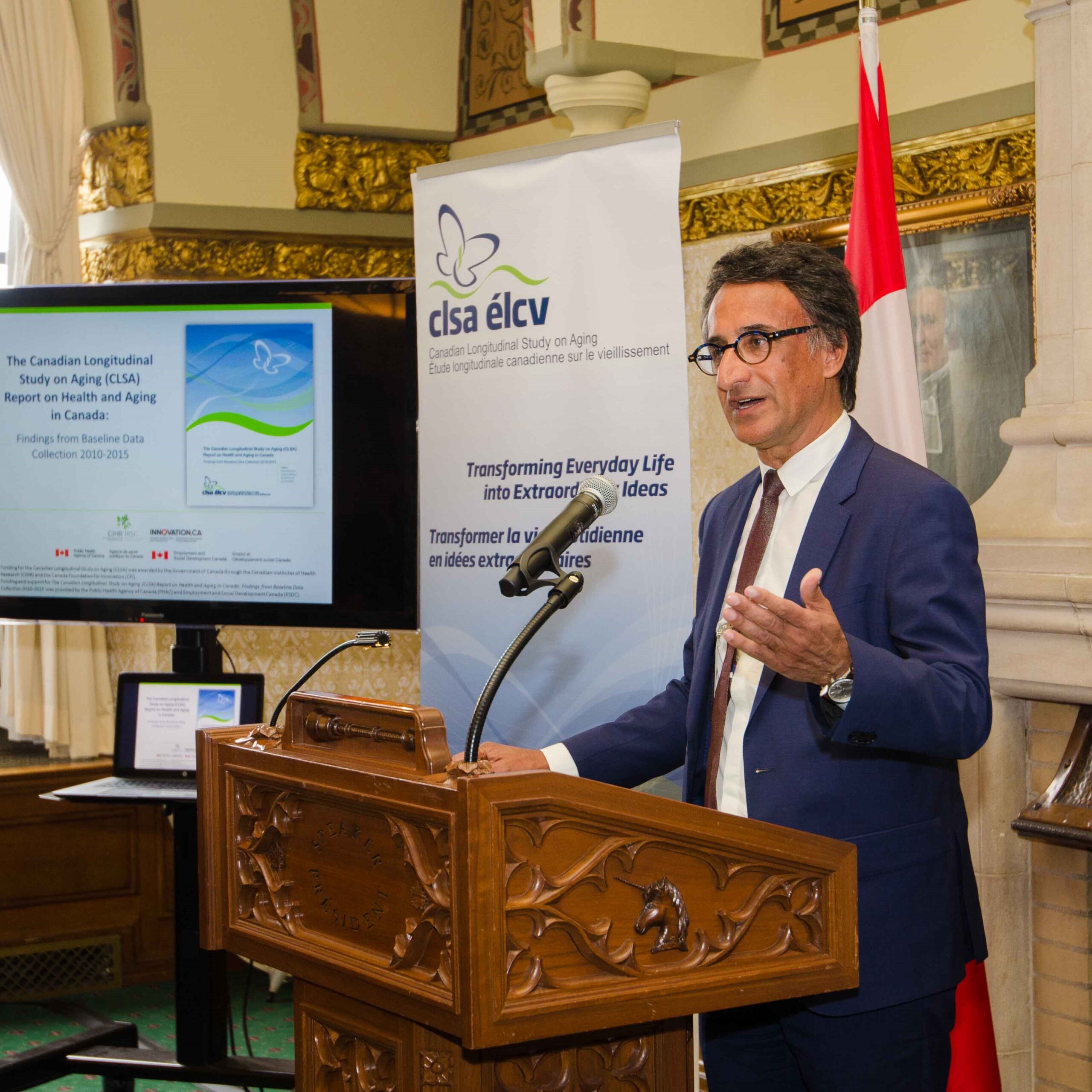July 31, 2023
Inspiring excellence and innovation
As a strategic initiative of the Canadian Institutes of Health Research (CIHR), the CLSA was first conceived in 2001, designed and piloted between 2001-2009, funded by CIHR in 2009 and subsequently launched to study the complexity of the aging process.
The vision of the CLSA is to nurture an ‘open-minded’ culture that inspires excellence and innovation in the field of aging by providing scientists and policymakers with rapid access to high-quality data.

CLSA Research Impact
Cognitive norms
Development of the first national normative data for cognition in Canada, which has direct value to neuropsychologists in their clinical practice.

WHO Decade of Healthy Ageing
Contributed CLSA data and provided data analysis support for the World Health Organization (WHO) Baseline Report for the Decade of Healthy Ageing.

CLSA Report on Health and Aging
Key findings from the Baseline data (2010-2015) collected from 50,000 participants, who were between the ages of 45 and 85 when they were recruited into the CLSA.
Informing policy
The CLSA collaborates with the Public Health Agency of Canada, Health Canada and Economic and Social Development Canada on research including cognitive impairment, elder abuse, and the impacts of air quality.

600+ approved research projects
The CLSA has provided data to 600+ approved research teams in Canada, the United States, Australia, and Europe.
400+ scientific publications
Read our latest peer-reviewed articles under Publications.

250+ trainee opportunities
Facilitating training opportunities for the next generation of researchers is fundamental to the long-term success of the CLSA.

1,500+ CLSA news stories
Findings from the CLSA have captured the attention of renowned media such as The New York Times, The Washington Post, and The Globe and Mail
Explore the CLSA research platform
Related News
Explore research findings, webinar recordings and videos, and the latest news from the CLSA.
“The CLSA and Health Canada are working together to investigate the ambient air pollution and chronic and debilitating diseases that affect the elderly. The CLSA dataset is unique. There’s nothing like it in Canada. It’s very comprehensive, focuses on older adults and allows us to look at health outcomes we otherwise wouldn’t be able to study in Canada.”
– Dr. Robert Dales, Health Canada





